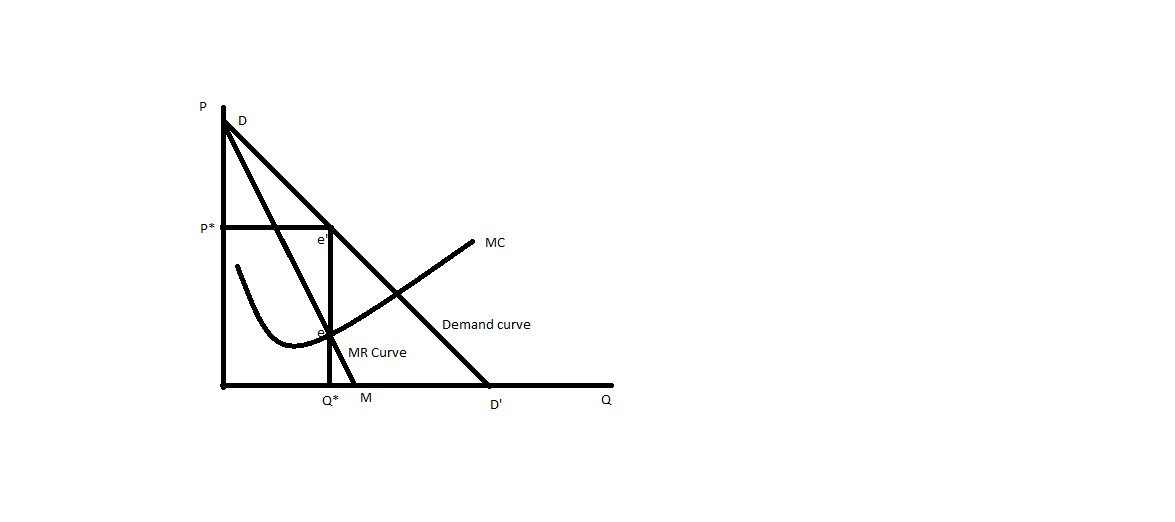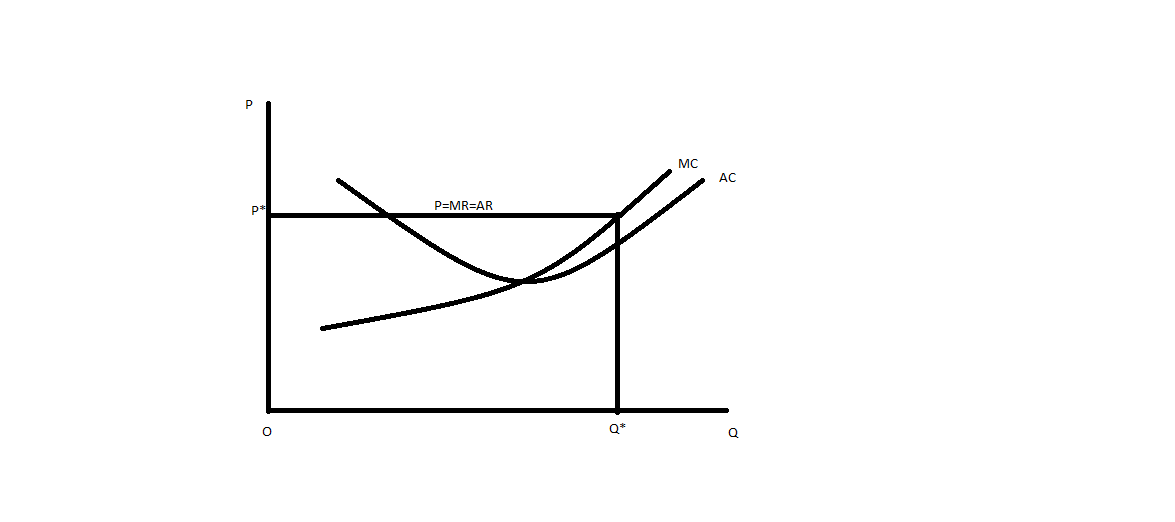How does a monopoly differ from a firm under perfect competition?
1 Answer
A monopoly firm is the sole seller of a product whereas there are many firms in a perfectly competitive market all selling similar products.
Explanation:
In a monopoly, demand curve faced by the firm slopes downwards from left to right, and marginal revenue is always less that the price. P=AR>MR. To sell an additional unit, the monopolist has to lower his price. Equilibrium of a monopoly firm in the short run is achieved at the point where MR=MC, and the corresponding price is set according to the demand curve. The firm is a price maker.

On the other hand, in a perfectly competitive market, there are many firms selling homogeneous product, and the firm is a price taker. The demand curve faced by the firm is perfectly elastic, a horizontal line, and he can sell any quantity at that price. Equilibrium is obtained where MC=MR, but also, P=MR=AR.


